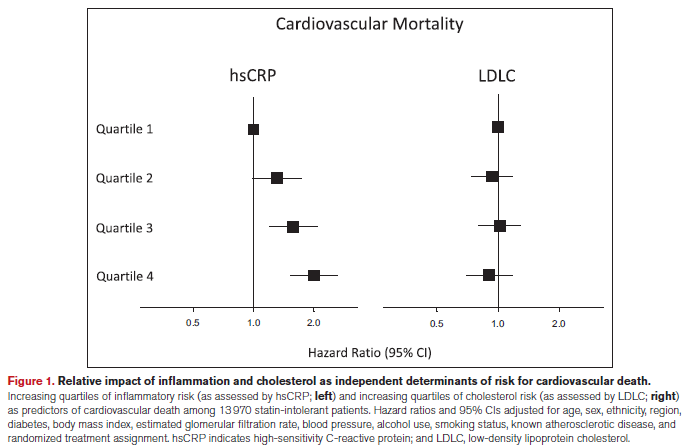In this study, hsCRP > LDL as a predictor of cardiovascular mortality:

https://www.ahajournals.org/doi/10.1161/CIRCULATIONAHA.123.066213
This uses “Hazard ratio”, where 1.0 means no extra hazard, numbers greater than 1.0 are worse, and numbers less than 1.0 are better. Meaning, technically, that higher LDL in Quartile 4, the highest they looked at (LDL > 158.5 mg/dL), means slightly less mortality. Shocking!
Now, I usually ignore these numbers until they get close to or above 2.0, which is what the hsCRP does for Quartile 4 (>4.46 mg/L)
Anyway, we constantly hear that LDL is deadly, causative for cardiovascular issues, yet when you begin looking into this, other measures are often better predictors. Such as hsCRP or even trigs/HDL.



